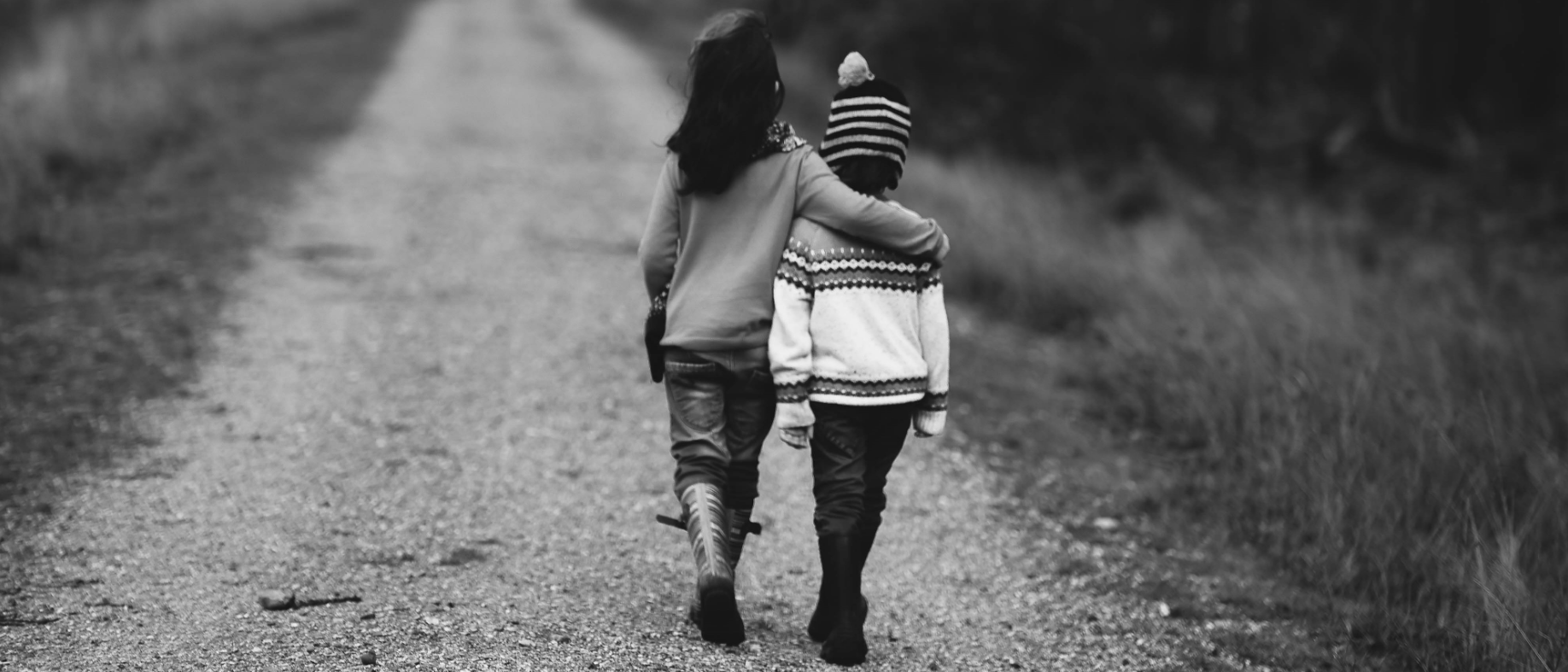On March 2, 2021, Experience Camps convened a one-hour event with leading grief experts to explore what the past year has taught us about grief and loss at a time when grief leadership has never been needed more. This report summarizes the event’s major takeaways and themes.
Watch the event recording | Download the report PDF
Major Takeaways
As distinct from mourning or bereavement, grief can involve more than a death-loss – and, since the WHO’s official declaration of the pandemic on March 11, 2020, Americans have lost many things, including loved ones, employment, in-person schooling, and daily routines that instill a sense of stability. As vaccines roll out, the world should return to a semblance of normality. Yet, millions of people will still be grieving, and many mourning the death of someone special.
“Grief has never been a more relevant issue. If you are feeling a tidal wave of heaviness, you are not alone.” – Nora McInerny
Experts estimate that every person who dies from COVID-19 leaves behind nine bereaved loved ones, meaning an additional 4.5 million people are grieving a death right now. Of them, approximately 1.1 million are children. In addition, millions more Americans are confronting deaths due to a variety of other causes, but without the in-person community and rituals designed to help them during such a challenging time.
It is important to remember that grief is not just a personal tragedy. The ripple effects of grief can be felt throughout communities. Grieving families need holistic support systems that encompass physical and mental health benefits, bereavement leave (from school and work), access to tax relief and financial support, and legal protections. America needs stronger bereavement policies, and families with grieving children need greater access to tools and resources that can help them cope.
Children grieve differently than adults. They often process their grief through their actions, such as play. A significant misperception about childhood grief is that just because children seem okay on the outside, they must be feeling fine on the inside. Unaddressed, childhood grief too often can lead to mental health struggles, academic decline, substance misuse, even premature death. But it also can spark remarkable resilience and empathy,
Look and listen for cues from grieving children. Often, the most helpful support is not an extravagant action. Listening goes a long way, and it can be both in person and virtual. Ask how children are feeling, initiate conversations about loss, and make space for however they express their grief. For both children and adults, remember that grieving is highly individual and can be a very long-term process.
Digging Deeper on the Key Themes
Grief during the Pandemic
- Grief is a term that can encompass more than death, but many types of loss. In the context of the pandemic, grief is tied to the loss of things that established stability in our lives, such as in-person connection and routine. This is the first time that all of us have experienced anything of this magnitude. We are all amateurs.
- While people who have experienced a death feel grief, we also can say that they are bereaved and in mourning. This can be made more challenging by the physical distancing and other restrictions related to COVID-19. People who had a loved one die from any cause during the pandemic not only deal with their grief, but the complexity of navigating their loved one’s death in the midst of a pandemic that has upended our daily lives and traditional death rituals in the context of community. This can make it more challenging or complicated to deal with loss.
- These complexities are different from the phenomenon of complicated grief, which anecdotal evidence suggests more people may be experiencing now. Complicated grief is a persistent form of intense grief that typically manifests as mal-adaptive thoughts and behavior, and a prolonged period of longing and sadness. With complicated grief, people struggle to adjust to the “new normal” and can appear frozen in time.
- Experts estimate that every person who dies from COVID-19 leaves behind nine bereaved loved ones, meaning an additional 4.5 million people are grieving a death right now. Of them, approximately 1.1 million are children. In addition, millions more Americans are confronting deaths due to a variety of other causes. In fact, the pandemic has contributed to an estimated “excess mortality” of an additional 200,000 people who died of causes not directly attributable to the virus (such as a delay in seeking routine medical care during the pandemic).
- Grief is a national public health issue that deserves urgent attention. Too many families experience outcomes that are not just individual hardships, but reflect a pattern of negative outcomes if families aren’t sufficiently supported in coping and recovering in holistic ways. This is not just a private issue or personal problem. It is a systemic issue that deserves greater attention.
- As vaccines roll out, the world should return to a semblance of normality. Yet, millions will be left grieving. In fact, COVID-19 has only punctuated other long-term epidemics of suicide, homicide, mass casualty events, and overdose confronting our nation. As a society, we need to seize the moment to pursue bereavement policy change to provide holistic bereavement services and grief support as we emerge from the pandemic.
“We are a grief-phobic society and silence is no longer the answer.” – Maria Collins
Grief & Kids
- Childhood grief is more widespread than many like to think. Prior to the pandemic,5.2 million children had experienced the death of a parent or sibling by age 18. In fact, 1 in 5 children will experience the death of someone close to them by age 18.
- Throughout the pandemic, children have experienced significant social isolation. Before, many aspects of their lives took place outside of the home. Now, everything happens at home with fewer options for physical contact with extended family and friends. This can rob them of natural outlets for processing grief – including play – and compound the loss they are experiencing.
- Grief is more than crying. While not every grieving child will experience negative outcomes, those who are not supported are more likely to feel anger, anxiety, and guilt, experience academic declines and sometimes engage in risky behavior that can undermine their futures. With the right support and factors, they also can experience remarkable resilience, at any age.
- It is important to engage even very young children around the issue of death. Children younger than the age of six do not intuitively understand death. After losing a loved one, adults must be patient as their children may repeatedly return to the topic as they learn about the permanency of death. In the same vein, grief does not end after a funeral. Children will need continuous support to process and wrestle with their grief – and often revisit it at each developmental milestone.
- Research conducted during the pandemic shows that educators want to do more to support grieving children, but only 15% of them felt prepared to have a conversation about grief, loss and trauma.
“We have to realize children show grief differently…I am learning to realize grief isn’t just over after the funeral…it’s okay to go through grief and it changes.” – Dr. Sandra McGowan-Watts
What Helps Grieving Children?
- With young children, it is important to be very clear and concrete. Use direct language, like “died” rather than “passed away.”
- Children don’t always have the words to express big feelings. It can be easier for children to show their grief through their behavior. Keep in mind that children process grief in many ways, including play. Look for cues from grieving children. Be receptive to however they choose to communicate. Ask how they’re feeling, initiate conversations about grief, and be open to any form of communication: texts, writing, emojis, anything that works.
- Research shows that most people stop supporting grieving people after three months. Be mindful to continue helping grieving young people recognize their loss, especially on significant dates that are linked to their loss, such as birthdays and anniversaries. Don’t be afraid to talk about the person who died every day.
- Often, the most helpful support is not an extravagant action. Simply being present and listening goes a long way, and this can be done both in person and virtually. If able, provide meals and other small services. Most importantly, be there and do what you can.
“Young children often don’t have the words to express their big feelings. Sometimes, they show you, rather than tell you.” – Dr. Jeanette Betancourt
Additional Insights on Grief
- People feel remarkably isolated in grief, but we can shift that.
- Most people drop off their level of support after three months, but the need for support extends far longer. If you know someone who is grieving, offer help without giving empty promises. Focus on the intersection of what you can do (competently and humbly) and what you will do.
- The military has processes for addressing grief and death with a circle of care. Our society could benefit from looking at other governmental and social bereavement practices used in other cultures. When it comes to grief services, role-model countries include the United Kingdom, Australia, New Zealand, Ireland, and Canada. Also, Native Nations have been integrating effective bereavement practices into their communities for centuries.
- Show grieving people – particularly children and teens – that you care. They won’t care what you know until they know that you care.
The Path Forward
- The field of bereavement is under-researched and underfunded, which often leads to grief being misunderstood. We need more research to better inform how we respond to grief, support grieving individuals, and measure the efficacy of our existing grief programs.
- Professionals serving grieving families also need support, including first-responders, physicians, law enforcement professionals, teachers, and mental health professionals. We also need grief sensitive schools – and an initiative is underway to advance this.
- As a society, we need a paradigm shift that treats grief like the systemic public health issue it is. That should include bereavement leave policies (that are more generous and allow the employee to determine which deaths should qualify), tax policy, juvenile justice, housing, medical systems, legal protections, and other systems that families interface with – to move from approaching the issue as a personal issue to creating systemic approaches to bereavement.
- We need to wrap families with services in the aftermath of a death. The individual services that exist are far too fragmented. America needs stronger bereavement policies and other initiatives designed to create a more grief-sensitive society. That begins with greater grief awareness. We deserve all this and more.
“Now is the time for a systems-based public health movement to begin serving our nation’s children and families.” – Joyal Mulheron
Resources
Here are some of the resources recommended by our panelists:
- Childhood Grief resources | Experience Camps
- Talk About Grief Discussion Guide |Experience Camps
- Shared Grief Project | Experience Camps
- Sign the White House Petition | Evermore
- Sign up to Advocate | Evermore
- Bereavement Resource Page | New York Life Foundation
- Three-part Children’s Book Series | New York Life Foundation
- How Parents Can Support Grieving Children | New York Life Foundation
- Grief Sensitive Schools Initiative | New York Life Foundation
- Speaking Grief | New York Life Foundation
- Caring for Each Other | Sesame Street
- Helping Kids Grieve | Sesame Street in Communities
Watch the Event Recording
Panelists

Nora McInerny (Facilitator)
Writer, host of Terrible, Thanks for Asking podcast and founder of Still Kickin, a nonprofit in Minneapolis
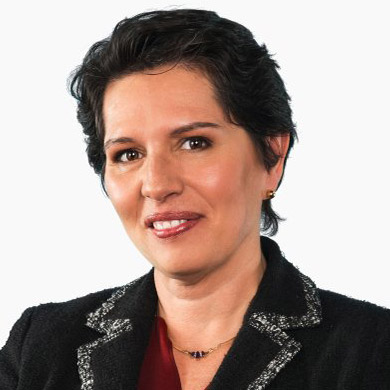
Dr. Jeanette Betancourt
Senior Vice President for U.S. Social Impact at Sesame Workshop, the nonprofit behind Sesame Street.
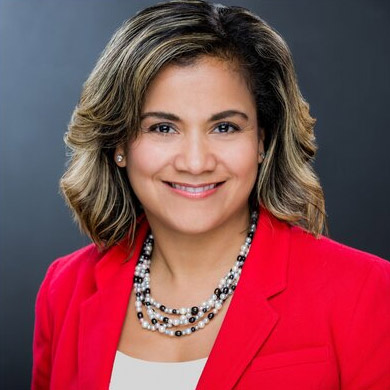
Maria Collins
Vice President of the New York Life Foundation, the charitable foundation established by New York Life Insurance Company.
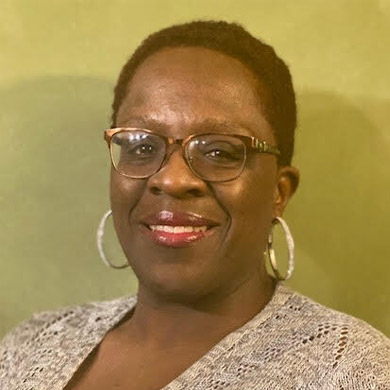
Dr. Sandra McGowan-Watts
Family Medicine Physician and owner of McGowan Family Health & Wellness Center in Chicagoland. Her husband, Steven, died from Covid-19 in 2020. She is the mother of 12-year-old Justise Watts, who also participated in the panel.
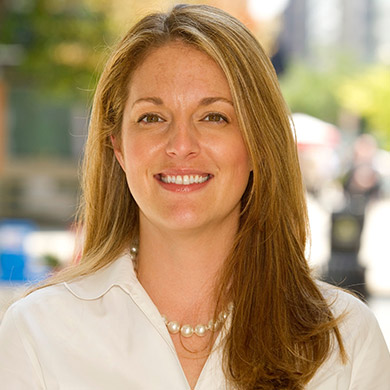
Joyal Mulheron
Founder and Executive Director of Evermore, a nonprofit advocating for bereavement policy change.
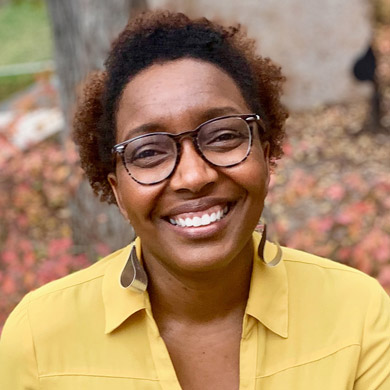
Brie Overton
Chief Clinical Officer of Experience Camps for Grieving Children and a doctoral candidate at the University of Missouri – St. Louis.
